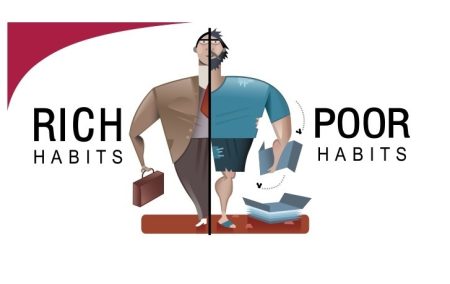It’s natural to feel a bit uneasy when the Federal Reserve starts rapidly raising interest rates, like they’ve been doing over the past several months. For more than a decade, investors have been exposed to an environment of ultra-low rates. But now the investing tide has been changing, and we need to learn to navigate these new waters quickly.
This is especially critical for minority communities, who often have less margin for error and slimmer financial buffers. The anchoring bias – is responsible for us clinging to past reference points when circumstances change and that bias may seriously impact financial decisions and wealth building if left unchecked.
Setting Your Anchor During Turbulence
How does anchoring on low rates show up in investment behaviors? People might continue reaching for higher yield through riskier assets, unaware of how much rates for more stable fixed income have climbed. Investors often perceive a hike of half a percent as negligible after years at zero. Reluctance to break old habits leads to missed opportunities. We also see inertia around sticking with conservative allocations and low-return cash despite more attractive alternatives emerging. And when higher returns do get captured, the natural reflex is often taking quick profits rather than letting capital compound over time. Chasing short-term gains versus maximizing long-term growth.
These anchoring tendencies can be even more pronounced among Black, Hispanic and immigrant investors contending with systemic barriers around financial access , education, and inclusion. Less experience navigating market shifts can reinforce outdated assumptions and reference points with a tendency to “stick with what worked” in the past as the conservative option, even when market conditions create different risks.
Why Its Hard to Let Go
Physiologically, the biased brain resists creating new neural pathways and struggles to integrate information that challenges existing anchored assumptions. Even experienced investors can become attached to historical data points, missing present potential returns or over expose themselves to new risks. Recognizing anchoring as a tricky psychophysiological phenomenon is key to mitigating its impact.
Breaking The Link To The Past
“Past returns are not indicative of future performance” is a phrase plastered across any historical data set in the finance world that typically falls flat; but how do we break free from the psychological anchor in personal finance?
- Continuously educate yourself on market changes. Don’t rely on past knowledge. Stay curious about optimal allocations as rate hike cycles play out. Monitor Fed moves and research current options in cash, fixed income, equities, etc. Commit to becoming a lifelong learner.
- Seek outside advice from a fiduciary. Find an advisor who pledges to serve your best interests, not sell products. They will objectively illustrate evolving opportunities without attachment to historical yields. Patiently explain the logic behind any recommended changes to your finances.
The financial world will keep evolving. Clinging rigidly to the past will limit your ability to adapt and capture new potential sources of returns. While disorienting at first, rising rate environments create openings too if you can see past the outdated anchors.
An unspoken key is giving yourself grace – we all fall victim to biases. But with an open and learning mindset, recognizing when your knowledge base needs updating, connecting with the right guidance – you will expand your financial opportunities, even in unfamiliar rate conditions.
So be kind to yourself, but stay hungry. We may be leaving an extraordinary decade of ultra-low rates behind, but armed with the right psychology and education, you can thrive in this new environment. It is essential for everyone, especially people #intheBlaQ: to be best prepared. Now let’s work together to escape those anchors to improve your chance for success. Your future financial well-being is counting on it.
Read the full article here









